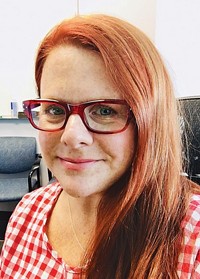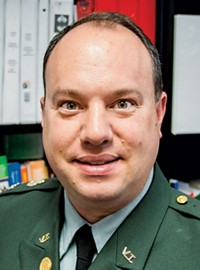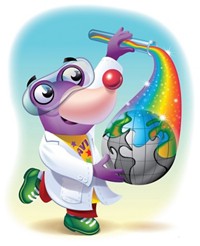Advertisement
Grab your lab coat. Let's get started
Welcome!
Welcome!
Create an account below to get 6 C&EN articles per month, receive newsletters and more - all free.
It seems this is your first time logging in online. Please enter the following information to continue.
As an ACS member you automatically get access to this site. All we need is few more details to create your reading experience.
Not you? Sign in with a different account.
Not you? Sign in with a different account.
ERROR 1
ERROR 1
ERROR 2
ERROR 2
ERROR 2
ERROR 2
ERROR 2
Password and Confirm password must match.
If you have an ACS member number, please enter it here so we can link this account to your membership. (optional)
ERROR 2
ACS values your privacy. By submitting your information, you are gaining access to C&EN and subscribing to our weekly newsletter. We use the information you provide to make your reading experience better, and we will never sell your data to third party members.
Environment
The Impact Of Outreach—And The Vital Role Of Chemistry Ambassadors
by George L. Heard, Chair, Committee On Community Activities
April 8, 2013
| A version of this story appeared in
Volume 91, Issue 14

Many chemists agree that outreach is valuable to the community. But have you ever thought about what participating in outreach can do for you personally?
Outreach can be very rewarding for members of the American Chemical Society. It’s an invigorating exercise in which you can help the public connect with what you do as a chemist. At the same time, it allows you to communicate what you know, believe, and think about chemistry. And anyone can do outreach, including industry professionals, academics, elementary school teachers, students, and chemistry enthusiasts.
Why do outreach? Speaking personally, as a professor at a small four-year university, outreach keeps me grounded in chemistry. For most of my colleagues and me, our regular daily activities—such as teaching and advising students, grading, and performing administrative tasks—don’t always involve chemistry. It seems the only time I do any actual chemistry during the academic year is when I do outreach.
In its most elemental form (pun intended), outreach is a way to engage with the citizens of the world, young and old, and awaken their scientific curiosity. It is also one of the best ways to increase the public’s science literacy. We are all aware of the good, bad, and ugly stereotypes about chemistry that are perpetuated by society. Outreach is a way to reinforce the good that chemistry does for our life and health, for the environment, and for the future. Every time we engage in outreach, we provide firsthand evidence that refutes the stereotype that all chemistry is bad.
With this goal in mind, no interaction is too small. Outreach can occur with one box of supplies and a group of 20 kids. Or it can take place on a larger scale, through participation in activities such as science festivals. Whether their outreach involves working individually or in concert, chemists’ impact on the community can be significant.
This year, for the first time, ACS is recognizing such volunteers through its Outreach Volunteer of the Year program, sponsored by the Committee on Community Activities. Each local section can designate one member who has performed extraordinary outreach service during the previous year. This year, we are recognizing 44 of these local section members. I would like to extend my personal gratitude to each of these individuals. Please visit www.acs.org/getinvolved to read more about these exceptional volunteers and the work they have done. They will also be featured in an upcoming issue of C&EN.
ACS sponsors two major outreach events each year: Chemists Celebrate Earth Day (CCED) and National Chemistry Week (NCW).
CCED marks its 10th anniversary this month with the theme “Our Earth: Handle with Care!” CCED events will explore a variety of sustainability topics related to air, plants and soil, recycling, and water.
Volunteers can find a number of CCED educational resources online at www.acs.org/cced. They include Celebrating Chemistry, a hands-on activity publication; kid-friendly chemistry career profiles; a sample theme-related PowerPoint presentation; and podcasts. In addition, the site provides a list of websites and other resources related to the CCED theme.
Earth Day will take place on April 22. Volunteers will have another opportunity to reach out to the public during this year’s NCW, which will take place in the week of Oct. 20–26 and will focus on a theme of “Energy: Now & Forever!”
NCW reached a major milestone last October, when 172 ACS local sections celebrated the program’s 25th anniversary with a host of activities associated with the theme “Nanotechnology: The Smallest Big Idea in Science!” (C&EN, Dec. 17, 2012, page 39).
As part of the event, local sections hosted illustrated poem contests. The Committee on Community Activities selected winners, whose work was posted on the NCW website. Local sections also distributed more than 150,000 copies of Celebrating Chemistry in English and Spanish as part of NCW. Online versions and excerpts were made available in English, Spanish, Portuguese, Chinese, and French.
Also, ACS and its local sections prepared news releases that generated NCW coverage by newspapers and radio and TV stations throughout the U.S. That coverage reached a potential audience of 30 million.
As helpful as these resources are, they’re missing one key component: the human element. That’s where ACS’s Chemistry Ambassadors come in, as living, breathing representatives of the chemical enterprise who can engage the public with this year’s CCED and NCW themes and positive messages about chemistry.
Remember, each of us is an ambassador for chemistry, and every outreach effort we undertake helps our society, as well as us as individuals. To those who are already active in outreach, I offer my sincere thanks and celebrate your efforts. If you are not yet involved, I hope that you too realize that outreach events large and small have a great cumulative impact on the public’s perception of chemistry—and that you begin to get involved soon.
For more information on CCED, NCW, and other outreach programs sponsored by ACS, visit www.acs.org/outreach, call (800) 227-5558, or connect online through the ACS Network, Facebook, and Twitter.
Views expressed on this page are those of the author and not necessarily those of ACS.





Join the conversation
Contact the reporter
Submit a Letter to the Editor for publication
Engage with us on Twitter